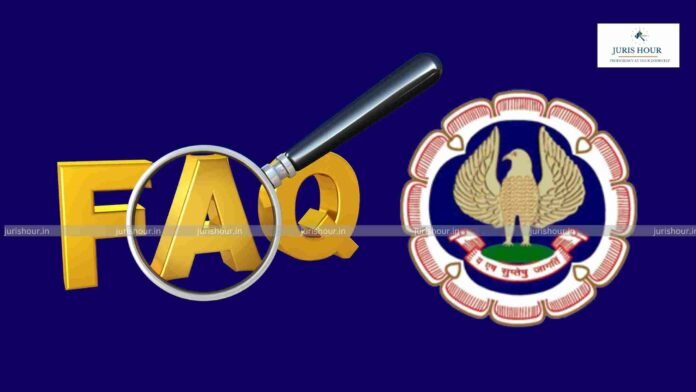The Institute of Chartered Accountants of India (ICAI) has released a comprehensive set of Frequently Asked Questions (FAQs) clarifying the applicability and procedure for reporting the Auditor’s Opinion on financial statements while generating a Unique Document Identification Number (UDIN). The initiative seeks to ensure uniformity, accuracy, and compliance in audit reporting across various statutory and professional assignments.
According to the ICAI, the field for “Auditor’s Opinion on financial statements” is compulsory only for two categories — ‘GST & Tax Audit’ and ‘Audit & Assurance Functions’. For other engagements such as concurrent audit, internal audit, revenue audit, system audit, valuation reports, or compilation engagements under SRS 4410, auditors are not required to provide an opinion on financial statements. This differentiation ensures that the requirement is applied only where the expression of a true and fair view is relevant to the engagement’s scope.
When the functionality is activated on the UDIN portal, auditors are prompted with the question, “Is Auditor’s Opinion on financial statements applicable to this audit?” If “Yes” is selected, they must specify the type of opinion — Unmodified, Qualified, Adverse, or Disclaimer. In addition, auditors are required to disclose whether the report contains elements like Key Audit Matters (KAM), Emphasis of Matter (EOM), Other Matter, or Material Uncertainty related to Going Concern. The portal also mandates the selection of the entity type, such as Listed or Non-Listed, with further classification options for the latter.
The ICAI explains that a modified opinion may arise under Standard on Auditing (SA) 705 (Revised), which recognizes three types — Qualified Opinion, Adverse Opinion, and Disclaimer of Opinion. A Qualified Opinion is appropriate when misstatements are material but not pervasive, while an Adverse Opinion is issued when misstatements are both material and pervasive. A Disclaimer of Opinion applies when auditors are unable to obtain sufficient appropriate audit evidence, significantly limiting their ability to form an opinion.
The FAQs also clarify that auditors should select “No” for the question on applicability only when a true and fair view of financial statements is not required for that engagement. This typically includes assignments outside the purview of SA 700 (Revised) — Forming an Opinion and Reporting on Financial Statements — which mandates the auditor to express an opinion only after obtaining reasonable assurance that the financial statements are free from material misstatement.
In the context of tax audits under Section 44AB of the Income Tax Act, 1961, ICAI confirms that an auditor’s opinion must be provided under Clause 3(b) of Form 3CB. However, under Clause 3 of Form 3CA and Clause 5 of Form 3CB, the opinion pertains to particulars in Form 3CD and does not fall under the UDIN functionality for financial statement opinions. The FAQs further mention that audits under the Maharashtra Charitable Trust Act require auditors to form and express an opinion on financial statements, thereby necessitating this disclosure.
The guidance also addresses reporting on material uncertainty regarding an entity’s ability to continue as a going concern. In such cases, auditors must comply with SA 570 (Revised) and other relevant technical literature. Similarly, deficiencies in Internal Financial Controls (IFC) under Section 143(3)(i) of the Companies Act, 2013, do not automatically imply a modification of the audit opinion. ICAI clarifies that while auditors may issue a separate modified report on internal controls, it does not affect the main audit opinion under this UDIN functionality.
With respect to audit trail reporting under Rule 11(g) of the Companies (Audit and Auditors) Rules, 2014, auditors are required to make specific assertions in their report under “Other Legal and Regulatory Requirements.” However, any modification made in that section does not necessitate a change in the main auditor’s opinion and therefore need not be reported under the UDIN functionality.
The ICAI stated that these clarifications were issued to promote consistent interpretation and implementation among practitioners. The move aims to strengthen audit quality by ensuring that opinions expressed in statutory audits are aligned with applicable Standards on Auditing (SAs) and regulatory frameworks, reducing the risk of non-compliance and enhancing the credibility of audit documentation.

